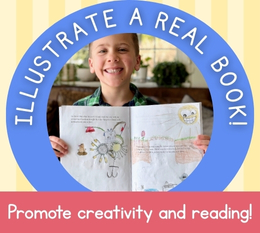The Old Schoolhouse® Product & Curriculum Reviews
With so many products available we often need a little help in making our curriculum choices. The Old Schoolhouse® Magazine family understands because we are in the same boat! Do you need more information on a product before you buy? With over 5,500 products listed in 52 easy-to-use categories, much of the information you need to know is only a click away! Let our reviewer-families help yours.
The Mislabeled Child: How Understanding Your Child's Unique Learning Style Can Open the Door to Success Review by Dr. Anne Margaret Wright
Brock Eide, M.D., and Fernette Eide, M.D.Hyperion Books
77 W. 66th Street, 11th Floor
New York, NY 10023
(212) 456-0175
http://www.hyperionbooks.com/
Have you been told that your child has ADHD, dyslexia, or some other label that left your head spinning? Or have you just noticed that your child learns differently or struggles in ways that other children don't seem to struggle? The Mislabeled Child by Brock and Fernette Eide is an excellent primer for understanding the process of learning and what it means when a child is struggling with learning. There are many similar books on the market, most of which fall into one of two categories: either they say there is no such thing as ADHD (children labeled as such only need discipline or a different diet), or they say ADHD and learning disabilities are biochemical in nature and must be treated with medication. I was very impressed that The Mislabeled Child delved much deeper into these often complex issues, providing a very academic and solid foundation for understanding challenges with learning, while doing so in a positive and understandable way that parents will likely find very refreshing.
The authors begin by explaining why they wrote this book and how labels can be helpful if understood in the proper context, but how labels can also create their own challenges. They describe how memory is designed to work. Then they build on this foundation to show what happens when a piece of the puzzle is missing. Topics include visual or auditory problems, language problems, attention problems, autism spectrum disorders, dyslexia and dysgraphia, math problems, sensory processing disorders, and even giftedness. I would have loved to see a chapter on developmental disabilities/mental retardation or borderline intellectual functioning as these can present very unique challenges. Each chapter provides excellent information about how to recognize the symptoms, how the condition impacts learning, and what to do if you see these symptoms in your child. The information is presented in a clear, readable fashion that takes complex ideas and makes them easily understandable.
We have one gifted child and three children with Down syndrome who each have their own challenges with learning. I found the information in this book to be very relevant, insightful, and helpful in understanding each of their learning styles and what is behind some of the challenges we see. But I was most impressed with the overall tone of the book. First, while it was not written specifically for homeschool families, the references to homeschooling as a viable option were very positive. Second, there is often much debate about the usefulness of labels with very strong opinions for and against. I found the authors' presentation of the usefulness and limitations of labels to be very balanced and helpful. They report that in their experience labels or diagnoses can provide valuable information and be used as a springboard for understanding learning challenges, but labels can also be taken too far and used to limit the understanding of a child who is ultimately much more than any label can express. Third, the authors made an excellent case for careful diagnosis, assessment, and treatment. Children with dyslexia are often labeled "lazy" or are assumed to have ADHD or even mental retardation. Gifted children are sometimes similarly mislabeled when they become bored in a traditional classroom. Unless there is an accurate understanding of what is "wrong" with the child, the treatment may be inaccurate, incomplete, or even harmful. Fourth, I found it refreshing that the authors showed such insightfulness and care for the children they have worked with who struggle with learning challenges. As a parent of children who have different learning styles and speeds, I was deeply encouraged by this excellent book! It will be a resource that we turn to often in the coming years!
Do you want to get the word out about your product or service to the homeschool community? Email the TOS Advertising & Sales Director, and share a little about what you´d like showcased, and we can help with that! Also, check out the magazine’s media kit and rate card at www.Homeschool.Market.


















































